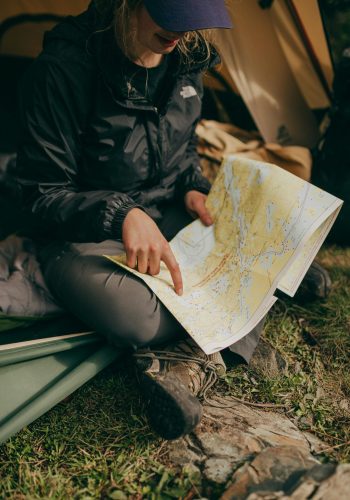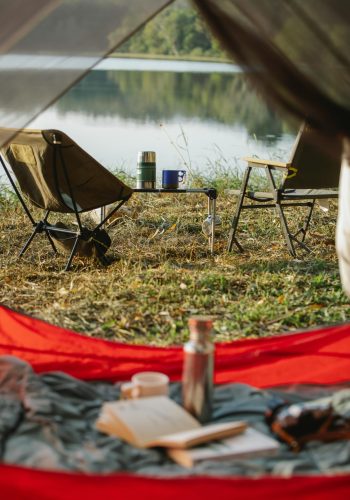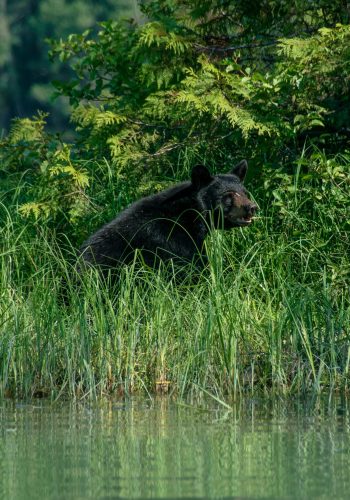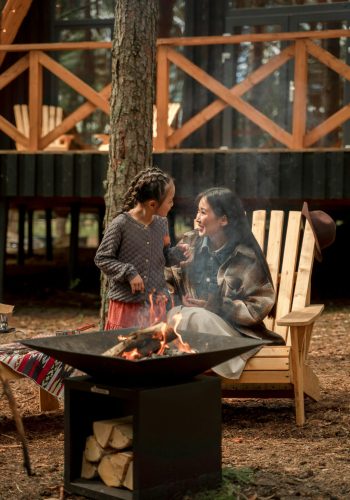Embracing Environmental safekeeping: Practicing Leave No Trace in Camping and Hiking
As outdoor enthusiasts, we are privileged to explore the breathtaking beauty of nature through camping and hiking adventures.
However, with this privilege comes the responsibility to protect and preserve our natural landscapes for future generations. Environmental stewardship is essential in minimizing our impact on the environment and ensuring that these pristine wilderness areas remain unspoiled for years to come.
Leave No Trace (LNT) principles serve as a guiding framework for responsible outdoor recreation, emphasizing the importance of leaving nature as we found it. By adhering to these principles, we can minimize our ecological footprint while enjoying the outdoors to the fullest.
Let’s delve deeper into each principle and explore practical tips and suggestions for incorporating Leave No Trace into our camping and hiking practices.
1. Plan Ahead and Prepare
Before embarking on your outdoor adventure, take the time to thoroughly research your destination and familiarize yourself with the area’s regulations and guidelines.
Consider factors such as weather conditions, trail difficulty, and wildlife encounters when planning your trip. Choose durable, reusable gear that will withstand the rigors of the trail and pack lightweight, compact items to minimize waste and reduce your environmental impact.
By planning ahead and preparing accordingly, you can ensure a safe and enjoyable outdoor experience while minimizing your footprint on the environment.


2. Travel and Camp on Durable Surfaces
One of the fundamental principles of Leave No Trace is to minimize our impact on the natural landscape by traveling and camping on durable surfaces. Stick to designated trails and campsites whenever possible to avoid trampling on fragile vegetation and causing soil erosion.
When setting up camp, choose a spot that is at least 200 feet away from water sources to protect water quality and wildlife habitat. Use established fire rings or camp stoves for cooking, and avoid building new fire pits or disturbing the natural landscape.
By treading lightly and respecting the integrity of the land, we can preserve its beauty and biodiversity for future generations to enjoy.
To help you on your way with finding some durable camping spaces, check out these 2 platforms:
Campspace.com is a platform that connects travelers across the world with unique and private camping experiences hosted by local hosts.
KOA.com is the official website of Kampgrounds of America, offering a wide range of family-friendly campgrounds across North America.
3. Dispose of Waste Properly
Proper waste disposal is crucial for maintaining the cleanliness and health of our outdoor spaces. Pack out all trash and waste, including food scraps, wrappers, and hygiene products, and leave no evidence of your presence behind.
Bring a trash bag or portable toilet for human waste disposal, and dispose of solid human waste in a cat hole dug at least 6-8 inches deep and 200 feet away from water sources, trails, and campsites. Practice “pack it in, pack it out” and leave nothing behind except footprints to minimize your impact on the environment.
When washing and refreshing yourself in nature, for example in a stream or just with some water you brought yourself, be sure to use biodegradable soap and shampoo. These products break down naturally, minimizing harm to the environment. Traditional soaps can pollute water sources, while biodegradable options leave minimal ecological impact


4. Leave What You Find
When exploring the outdoors, it’s important to leave natural objects and artifacts undisturbed for others to enjoy. Resist the urge to collect souvenirs or remove rocks, flowers, or other natural objects from their natural habitat. Leave rocks, plants, and other natural features as you found them to preserve the integrity of the landscape and maintain its natural beauty.
Take only photographs and memories, and leave nothing but footprints behind as you explore the wonders of nature.
5. Minimize Campfire Impacts
While campfires can be a cozy and enjoyable part of the camping experience, they can also have detrimental effects on the environment if not managed properly. When building a campfire, use established fire rings or designated fire pits to minimize the impact on the surrounding vegetation and soil.
Keep fires small and manageable to reduce the risk of wildfire, and use only dead and downed wood for fuel. Before leaving your campsite or turning in for the night, fully extinguish your campfire by dousing it with water and stirring the ashes until they are cool to the touch.
Consider alternatives to campfires, such as portable stoves or cooking over coals, to minimize your impact on the environment while still enjoying outdoor cooking.


6. Respect Wildlife
Observing wildlife in their natural habitat can be a highlight of any outdoor adventure, but it’s important to do so responsibly and respectfully. Keep a safe distance from wild animals and avoid approaching or feeding them, as this can disrupt their natural behavior and pose a risk to both humans and animals.
Keep food and trash secure to prevent attracting wildlife to your campsite, and store food and scented items in bear-proof containers or hang them from a bear-resistant food storage system when camping in bear country. Respect wildlife habitats and nesting areas, and minimize noise and disturbance to avoid stressing or displacing animals.
By observing wildlife from a distance and minimizing our impact on their habitat, we can coexist harmoniously with the natural world and preserve the biodiversity of our wilderness areas.
7. Be Considerate of Other Visitors
When enjoying the outdoors, it’s important to be considerate of other visitors and respect their rights and experiences. Practice trail etiquette by yielding to hikers, bikers, and equestrians, and keep noise levels to a minimum to preserve the tranquility of the wilderness.
Be mindful of cultural and historical sites, and refrain from defacing or vandalizing natural or cultural resources. Respect the privacy of other campers and outdoor enthusiasts, and maintain a courteous and considerate demeanor on the trail and at campsites.
By treating others with kindness and respect, we can foster a sense of community and camaraderie in the outdoors while minimizing conflicts and disruptions.

To summarize
As outdoor enthusiasts, it’s our responsibility to protect and preserve our natural landscapes for future generations to enjoy. By practicing Leave No Trace principles and embracing environmental stewardship, we can minimize our impact on the environment and ensure that these pristine wilderness areas remain unspoiled for years to come.
Let’s commit to leaving the outdoors better than we found it, one hike and campsite at a time, and inspire others to do the same. Together, we can make a positive difference and preserve the beauty and biodiversity of our natural world for generations to come.










